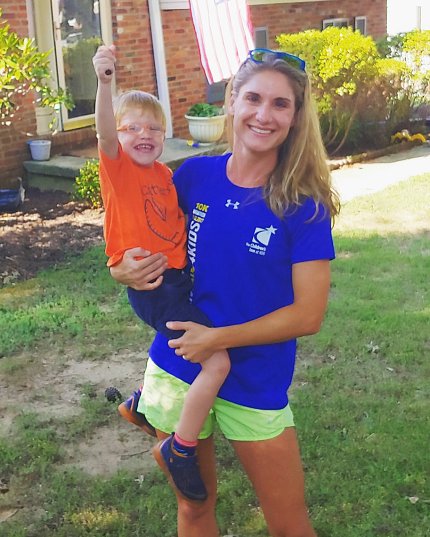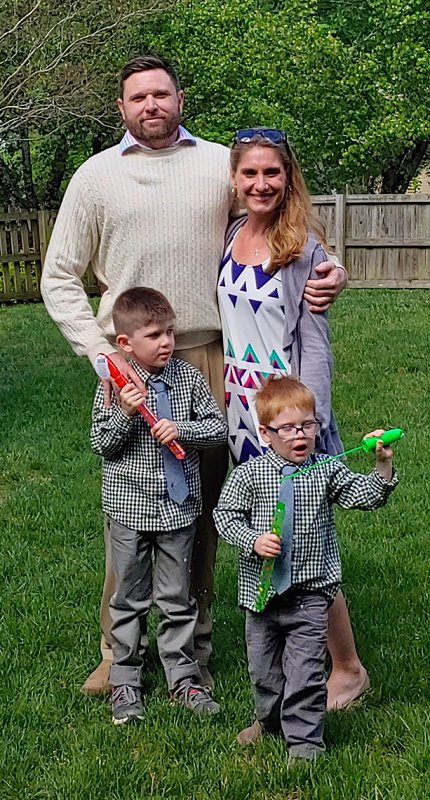Patient’s Mother To Run Marathon for Inn

When Emily Otterbacher first brought her son Cole to NEI’s Eye Clinic, staff told her, “This is where you belong. We’re going to get a diagnosis for you. You’re in the right place.”
The statement reassured Otterbacher. Until that point, her son’s doctors in Annapolis were puzzled by his symptoms. Shortly after Cole was born, she noticed his eyes involuntarily ticking back and forth, a condition known as nystagmus.
Cole’s pediatrician thought the condition would improve as the boy’s eye muscles developed. By the time he was 5 months old, the ticking hadn’t improved, so Otterbacher took her son to a pediatric ophthalmologist for a second opinion. He couldn’t make a diagnosis, so he referred Cole to NEI and told her, “If anyone can figure it out, it’s going to be the NEI.”
Led by Dr. Brian Brooks, chief of NEI’s unit of genetic and developmental eye disease, Cole’s team diagnosed him with congenital stationary night blindness, a rare genetic disorder. Those with the condition have difficulty seeing in low-light situations. Nystagmus is one of the primary symptoms.
When Cole goes into a dark room, Otterbacher explains, his big brother, Landon, helps him by reaching for light switches.
“Cole is remarkable. He doesn’t let his diagnosis slow him down,” she said. “Most people wouldn’t know he has any problems besides wearing glasses.”

This year, Otterbacher is part of the Children’s Inn at NIH’s #RunINN4Kids Marine Corps race team. On Oct. 27, she’ll run the Marine Corps Marathon, a 26.2-mile race that passes by some of the most recognizable landmarks in Washington, D.C., and Arlington, Va. To join the team, runners must raise at least $600 for the inn.
She learned about the inn during one of her son’s visits to the eye clinic. She looked out the window and saw the inn’s “amazing” playground. Although Cole is an outpatient, the inn welcomed him.
“We can take Cole there if he needs a break or after a day of tests,” Otterbacher said. “He can play on the playground or take a nap.”
Otterbacher has met other families through the inn and NEI. She shares with them the feeling that “you never, ever want anything wrong with your child. There are a lot of questions and uncertainties.”
She added: “Even if there are different things wrong with our children, there’s that ‘our-kid-has-something-rare’ connection. It’s scary and frustrating sometimes, but we all wound up here together, which is nice.”
The marathon will be Otterbacher’s fifth. She has always been a runner. But after her son was born, she began running longer distances as an outlet. So far, her training has been going well. Her goals are to get faster, stronger and to be injury-free at race time.
Her husband James’s support has allowed her to follow a training regimen.
“Marathon training takes a lot of time and he’s super supportive through all of it,” she said. “Every single weekend, I have to wake up early and go for a long run.”
Running the race for the inn is a “no brainer,” Otterbacher explained. The inn “isn’t a random charity. It means a lot to us.”
